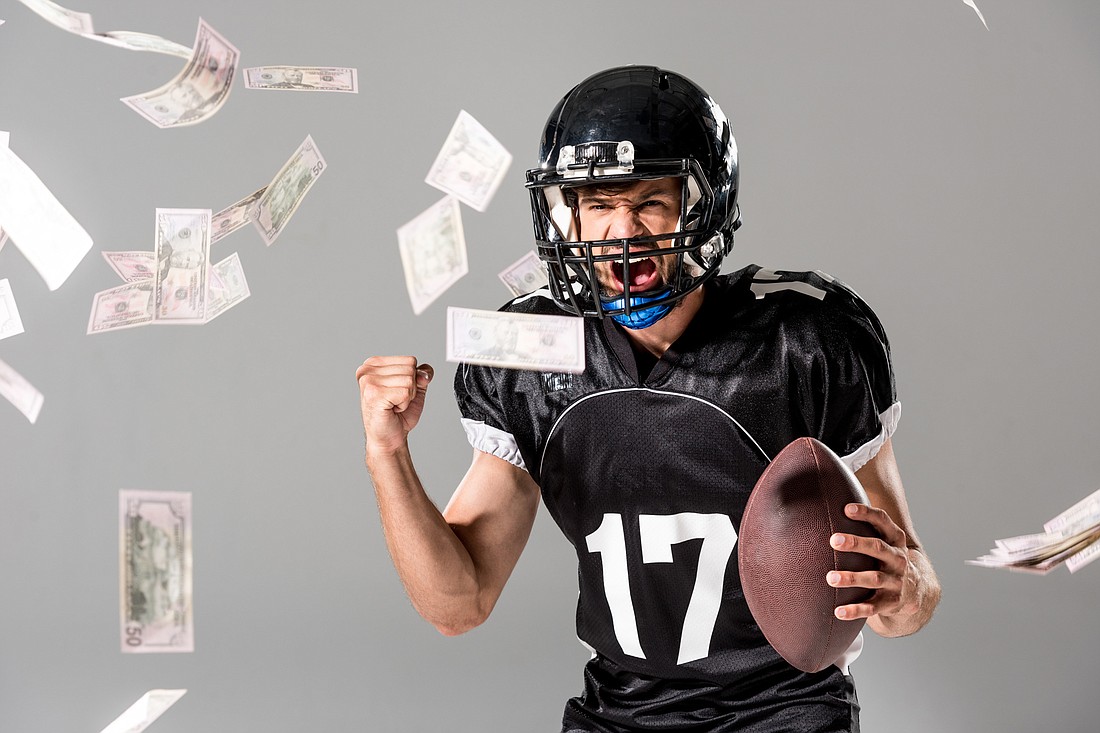
By Valeen Arena, JBA Young Lawyers Section board of governors
The way we recruit for—and root for—college sports may change as early as next year.
This summer, Gov. Ron DeSantis signed into law the Intercollegiate Athlete Compensation and Rights Bill.
For the first time, Florida college athletes will be allowed to profit from the use of their name, image, and likeness, beginning as early as July 2021.
Colorado and California have enacted similar legislation, but Florida’s law will take effect 18 months earlier than in those states, in time for next year’s college sports season.
Around two dozen other states have similar bills in the legislative process. Given the timing of the Florida law’s start date, other states may feel pressure to act quickly. Florida could have a competitive recruiting advantage for prospective college athletes hoping to profit from the use of their name, image or likeness.
The new law has some restrictions: A student athlete’s compensation must be commensurate with market value of the authorized use. This is to preserve the integrity, quality, character and amateur nature of intercollegiate athletics and to maintain a clear separation between amateur intercollegiate athletics and professional sports.
In addition, student athletes may not receive compensation for athletic performance or attendance. Compensation may only be provided by a third party that is unaffiliated with the athlete’s school.
Athletes must disclose the terms of any contracts to their schools, and they may be prohibited from entering a contract if it conflicts with any of the school’s contracts.
Still, the new law is a big change, giving college athletes freedom to profit from their own names.
Under the new law, individual athletes can market and create a real brand for themselves, separate from their college brand and mascot.
On the other hand, college brands may suffer if fans begin rooting only for the individual player rather than the overall team.
Colleges work hard to keep their players under the team umbrella to build the reputation and prestige of their brand.
Think how young athletes may grow up dreaming of playing for the University of Florida Gators, for example. Part of that draw is the team name and what it stands for, something colleges will want to continue to build and protect.
It will be an important balancing act for colleges between team culture and a star player who may draw in revenue and a huge fan base.
If every player is individually promoted, the effect could trickle down to fans and future players not prioritizing their teams. Loyalty issues could arise.
Larger and more established colleges may be more open to these new laws because they already have a strong fan base.
Smaller and less established colleges may shy away from star players, wanting to spend time developing their team name.
Alternately, we may see smaller colleges use the new law as a recruitment selling point to draw star players who want more leeway to develop their own brand.
The new law has broader implications for Florida intellectual property law as well. It’s a huge step toward protecting an artist’s rights regarding his or her work, talent and reputation.
Eventually, this could expand to laws related to other professions. It also encourages more invention, more brands and more competition overall.
The challenge for this new law will be keeping the interests balanced for all parties, including fans and families.
During this time of COVID-19, whether a sports fan or not, we’ve gained a new appreciation for sports and the role they play in our communities. We may have taken for granted the culture and community that sports bring to our lives.
Next season, student athletes who work hard and do great things for their teams, their colleges and their communities may be compensated.
Will the new law change how you support your favorite players or college teams?
Valeen Arena is an attorney at the Bedell Firm. Her practice focuses on civil litigation. She is a member of the JBA Young Lawyers Section board of governors and is The Florida Bar Young Lawyers Division 4th Circuit representative.